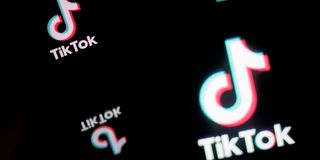Memes led me to TikTok; I’m yet to meet the infamous naked humans

TikTok platform. Petitioner says TikTok is a contributor to erosion of cultural and religious morals in society.
What you need to know:
- I joined TikTok a little over two months ago and can in no shape or form pretend to know much about the platform.
- I stayed away for so long because of some of the assumptions I had made regarding the app, and what people said was posted there.
- The other reason was, of course, that I do not have a lot of time to create content for all the social media platforms I am on.
I need to make a disclosure before I start: I joined TikTok a little over two months ago and can in no shape or form pretend to know much about the platform.
One of the reasons I stayed away for so long was some of the assumptions I had made regarding the app, and what people said was posted there. The other reason was, of course, that I do not have a lot of time to create content for all the social media platforms I am on.
I had, therefore, settled it in my mind that it was a choice between Instagram and TikTok – and it was easier to just stay on an app I was familiar with. But I eventually joined because some of my favourite content creators are on the platform, and I knew I was missing half of my favourite memes—I love memes so much; I would probably follow them to the end of the world.
With that out of the way, let’s talk about the nagging issue of banning a social media platform. There was a petition to the National Assembly to ban TikTok in Kenya.
Morality question
According to the petitioner, the social media platform erodes the morals of the youth and exposes them to explicit sexual content. Do not be alarmed, the petition was shot down by most Members of Parliament who were quoted by the Nation in last Wednesday’s paper.
While the petition was shot down, and hopefully it doesn’t see the light of day, I was concerned about a number of things. One was the infantilisation of the youth and the general public.
It is true that many young people, especially those who are around the age of 18 and 19, do not always fully understand the gravity of their actions. And they need extra protection, even from themselves. But I still have to ask: How many social media platforms, indeed, content platforms, will we eventually have to ban if we are to exonerate young people of any responsibility for their actions/choices?
I know that the younger someone is, the more impressionable they are. However, I defy anyone who says young people are incapable of distinguishing content that is acceptable to them and what is not, especially when they are not held to ransom.
What happens to the 22-year-old using TikTok to sharpen her comedy skills? Of course, I don’t need to remind you that there are people whose careers have been built entirely on TikTok.
It is not in my place to explain that social media platforms have varying content and whatever ends up on your timeline is dependent on the kind of content you engage with and share, and the ‘celebrities’ and ‘influencers’ you choose to follow.
Whether the said platform is Instagram, Pinterest, YouTube, Facebook, X, or Threads. I imagine that is why the Constitution provides for freedom of speech. Think about it this way: If the platform was banned in Kenya, you’d never get to know about global TikTok sensations such as Khaby Lame, who keeps many people laughing without saying much.
I know people are different, they have different levels of self-discipline and age can be a big factor. In life, though, choices will always have to be made by individuals, institutions, families and governments.
Every decision has a flipside to it. For example, by saying no to social media as an individual, you are saying 'yes' to missing out on the ability of social media to give you quick updates on your favourite musician.
Similarly, if the government opts to say no to social media (yes, there are countries in the world where this is a reality), it is also saying no to job opportunities that have come through social media, among many other benefits. The solution, I believe, is a personal responsibility.
Most things in life will always come as a buffet – whether this means books, magazines, clothes, movies, content on social media platforms, and so on. It is important to start training yourself to say ‘no’ to the things that do not serve your personal goals, and ‘yes’ to those that do.
Final disclosure: I am yet to meet half-naked women on my TikTok timeline. Or maybe it is still early days.
The writer is the research and impact editor, NMG ([email protected]).





